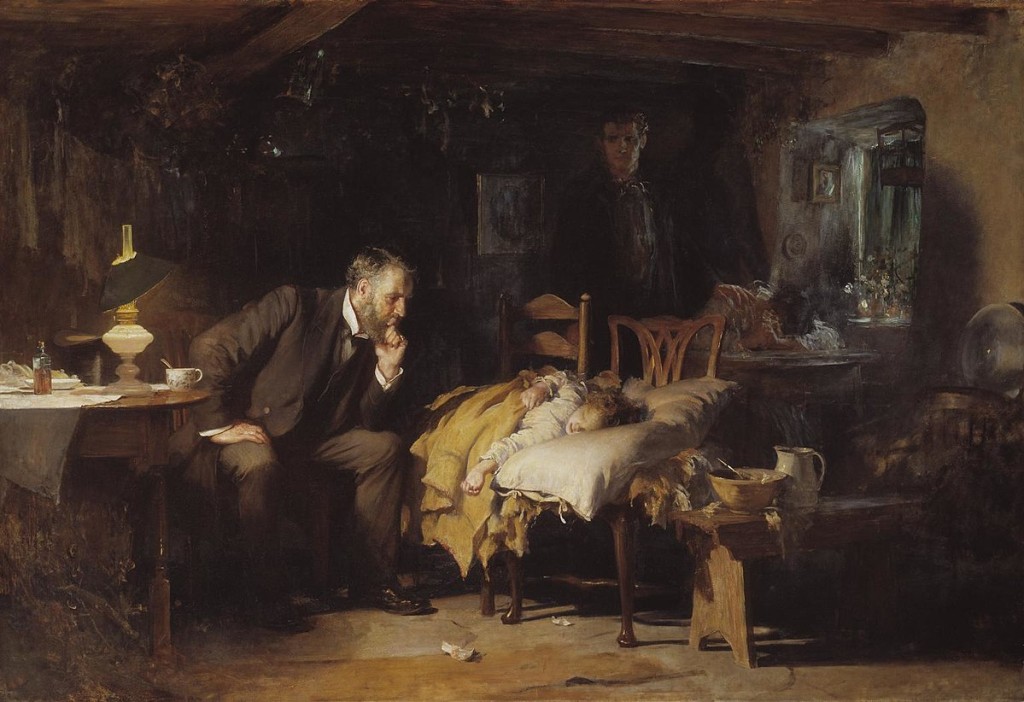The pandemic period has not been kind to some patients’ relationship with health professionals. A period of information uncertainty, spawning hoaxes. The patient with his own opinion and his own information falls under a crooked gaze.
However, ignoring or even ridiculing “patients with an opinion” is not a sustainable or effective strategy. Patients with a hunger for information will consume it, especially since it is virtually free. A well-informed patient is a boon to healthcare – it moves the bar of potential performance of the entire healthcare system upward. With the growing global healthcare staffing crisis, self-help by the patient and their loved ones will be essential.
We can liken this to IT knowledge. The more a user knows about how software works, the more complex things professional IT support can address. In addition, many new health technologies (especially diagnostic technologies) explicitly need a well-informed patient capable of operating them in order to function.
Everyone probably intuitively agrees with the previous sentences. The problem is not informed patients, but ill-informed patients chasing microchips in their blood and trying to dispose of them by drinking sanitizers.
To begin with, we have to accept that “perfect knowledge” will never be achieved. There is no perfect consensus even in science, and after all, even among doctors we find homeopaths (homeopathic “remedies” are even taught right in the Faculty of Pharmacy), sellers of bioresonance, and proponents of various harebrained theories. What is important is in which direction the knowledge average is moving.
No, I do not have the data on that, but I am convinced that at least intergenerationally things are changing for the better – also thanks to technology. Today, patients routinely take their blood glucose and blood pressure, have blood tests done, know what a CRP test is, those with better nerves can use an automatic defibrillator or do the Heimlich maneuver. Hardly conceivable in our grandparents’ world.
We can philosophize about whether the opening of the information gates of the Internet has spoiled this trend. I daresay not. Indeed, the same argument applies to book printing, but we can hardly find anyone today who would consider a world without mass-produced literature a better place.
Instead of moaning about hoaxes, we need to take a proactive approach to the issue. I am not talking about some centralized state ‘project’, but rather a decentralized shift in the culture of health information work – at the level of the state (whether in the form of the Ministry of Health, the Ministry of Education, and all relevant institutions), health professionals and other health service providers, insurance companies, but also the media and educated lay people who can positively influence their surroundings.
The simpler task is prevention, which is almost impossible to do without an informed patient. The second, considerably more difficult task is to work with information in the actual treatment, where the lay person falls much more easily into a pit of erroneous information and (influenced by emotion) cannot put the pieces together correctly, resulting in mistrust of treatment.
However, discouraging the patient from “Dr. Google” is not the way to go. We find a number of studies have addressed the topic of online information seeking. For example, patients “Google” information for several days before they end up in the emergency room. Other research shows that parents of children have significantly increased their search for health information on the Internet months before their children are diagnosed with cancer.
A survey of 1,000 Poles showed that health information obtained from the Internet primarily motivated respondents to visit the doctor (45%), to ask additional questions about the diagnosis and its treatment (40%), and to request screening or tests (35%). Only 22% of respondents were prompted by Internet findings to postpone a doctor’s visit, and even fewer (7%) refused a scheduled test or (9%) changed treatment without consultation because of it.
We can therefore hypothesize that patients are consulting “Dr. Google” for early symptoms of chronic and acute diseases, but at the same time, they are gaining motivation to visit the doctor and request more professional information from him/her. In a minority of cases, they decide to change/delay treatment. A well-directed patient seeking information can thus benefit both themselves and the whole health system.
What does this mean in practice? More active encouragement of patients to educate themselves, along with recommended sources of information (nowadays even Wikipedia can work wonders), the creation of such sources of information (being able to refer the patient to pre-prepared sources will also facilitate a more assertive approach to the more wayward clients), openness to discussion, preparation for communication with the patient already during their studies, and more education about the human body in primary and secondary schools at the expense of the plant and animal kingdoms.
With the skyrocketing demand for health services and the advent of high-quality symptom databases such as WebMD or Symptomate, artificial intelligence and medical chatbots, it is likely that in the future the patient’s first contact will not be a live doctor, but an online algorithm. Sooner or later, it will be normal for a patient to arrive at the doctor’s office not with a printed paper from the Internet, but straight with the official opinion of a doctor from Stanford, UChicago, or the Cleveland Clinic.
By the way, “Google doctor” may be slang, but Google Health is a major division of the tech giant, which employs dozens of doctors and scientists from associated disciplines, much like Apple and other tech giants. Like other sectors, healthcare will move increasingly online.
The article was originally published in Slovak in TREND
Continue exploring:
Bulgaria’s Fight against Corruption
What Is Next for “Virtual Agora”? Regulation of Social Networking Sites and Changes in EU Law



